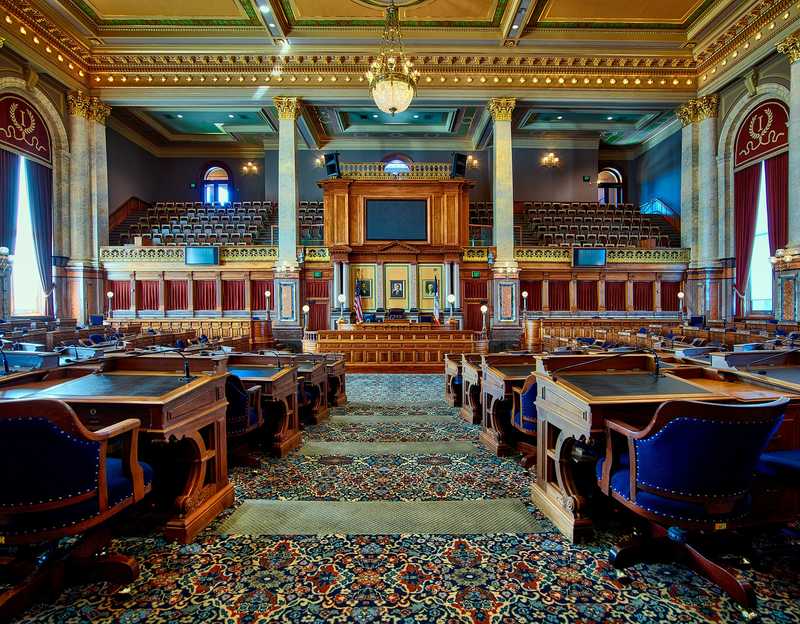Here's what you should know about the abortion bans being pushed through by these states right now
Monday, March 19, 2018 blog Share
A number of abortion bans are making their way through state legislatures. Here's what you should know about them.
First, some good news: On Wednesday, March 14, an Ohio district judge blocked legislation signed by Governor John Kasich making abortion illegal if the fetus is diagnosed with Downs Syndrome. The bill was scheduled to go into effect on March 23, but now it's blocked until further notice. In his ruling, Judge Timothy Black stated that - "cannot dictate what factors a woman is permitted to consider in making her choice." In short, the law violates the constitutionality of Roe v. Wade.
Unfortunately, a number of other abortion bans are making their way through state legislatures. Here's what you should know about them.
Iowa
Recently, the state Senate passed a bill banning abortion after 6 weeks. This would definitely be the strictest abortion ban in the country - it's a fetal heartbeat bill - and it would most certainly be challenged in court and fail. However, it's another direct assault on Roe v. Wade, and the audacity of the time constraint, and the fact that it passed the Senate, is emblematic of the Trump administration continuing to embolden extremists.
Right now in Iowa, abortion is banned after 20 weeks, you need parental consent if you're a minor, you need to have an ultrasound before you can get an abortion, and the governor has to approve each abortion before it's funded by Medicaid. If you need an abortion in the state, your best bet is to travel to Iowa City or Des Moines, which could be no small feat, considering the size and rural nature of the state. The Iowa Abortion Access Fund helps connects those who need help accessing abortion with the funds they need.
Mississippi
Mississippi's ban on abortion after 15 weeks is being labeled "the most restrictive in the country." It's being contested, of course, and according to the ACLU of Mississippi, there's no precedent for anything under 20 weeks being held up by a court.
Access to abortion in Mississippi is bleak without this ban - the only clinic in the state is located in Jackson, and the state already has a mandatory 24 waiting period and state directed counseling, which must be done in person (so you need to go to the clinic twice), as well as a parental consent requirement and an ultrasound requirement. Public funding cannot be applied to abortion, and that includes insurance supplied via the Affordable Care Act, unless the governor approves it. Abortion via telemedicine is also illegal in Mississippi. If you're in need of funding for an abortion in the state, reach out to the Mississippi Reproductive Freedom Fund.
New Hampshire
In spite of its liberal reputation, New England isn't exempt from terrible abortion politics. For example, Massachusetts requires the signature of a parent if someone under 18 is seeking an abortion. In Rhode Island, thanks to the Hyde Amendment, Medicaid can only be used to cover abortions in the case of rape, incest, or life endangerment, and the same applies if you're a public employee on public insurance.
In January 2018, New Hampshire Republicans introduced a bill into state legislature that would ban abortion after 8 weeks. In addition to the dramatic nature of the bill - it's fully possible that a person might not even know they're pregnant at 8 weeks - should this bill pass, it would force people seeking abortion into nearby states, which might prove prohibitive to low income folks. Right now, New Hampshire is also the only state in New England without an abortion fund, and it also bans Medicaid from covering abortion. If you need help affording an abortion in New Hampshire, contact the Eastern Massachusetts Abortion Fund (EMA).
South Carolina
Currently, you can't get an abortion after 22 weeks in South Carolina, which has a similar, but not identical, set of restrictions on the procedure as Mississippi. The Personhood Act was approved in February, and Senator Richard Cash confirmed that it is indeed supposed to provoke a Supreme Court case that would overturn Roe v. Wade.
South Carolina has 3 abortion clinics, located in Charleston, Greenville, and Columbia The South Carolina Women's Choice Fund helps folks who need abortion funding in the state, and also those who need to travel outside South Carolina for abortion care (although the closest states, Georgia and North Carolina, don't have great abortion access, either.)
Medical abortion, via the abortion pill, is a safe and effective option for folks in early pregnancy, especially for those who live in a state where there's a waiting period that will necessitate more than one visit and make getting an abortion difficult and/or impossible. If you'd like more information about the pill, how to get it, and how to know if it's right for you, visit Women Help Women






